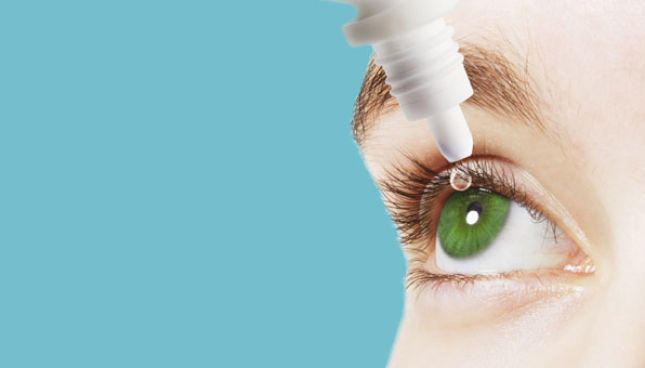Pediatrics in Andalusia: Compassionate Look After Growing Households
Pediatrics in Andalusia: Compassionate Look After Growing Households
Blog Article
Is Refractive Surgical Treatment Right for You? Aspects to Think About for Better Eyecare
In the realm of eye treatment, the choice to undertake refractive surgery is a substantial one that requires thoughtful factor to consider. As individuals look for clearness and liberty from the restrictions of corrective lenses, numerous factors enter play when identifying the viability of such a treatment. From the details of one's ocular wellness to the intricacies of day-to-day habits and personal expectations, each aspect holds relevance in the broader landscape of refractive surgical procedure candidateship. By assessing these key components with treatment and accuracy, a more clear path in the direction of informed decision-making arises.
Eye Wellness Analysis
When taking into consideration refractive surgical procedure, a detailed eye wellness evaluation is essential to evaluate the suitability of the treatment for each individual. cardiologist andalusia. This assessment involves a series of exams and tests performed by an eye care specialist to determine the overall health of the eyes, the existence of any kind of underlying conditions, and the security of the refractive error
Throughout the assessment, various aspects are thought about, such as the patient's case history, present eye prescription, corneal thickness, student size, and tear film high quality. These assessments aid to determine any kind of contraindications to refractive surgical treatment, such as corneal abnormalities, cataracts, or unattended eye infections. In addition, the examination assists to take care of client expectations regarding the prospective outcomes of the surgery based on their distinct eye attributes.
Ultimately, the eye wellness assessment is important in guaranteeing the safety and performance of refractive surgery, as it provides useful insights right into the person's eye wellness status and aids establish the most appropriate treatment alternatives for attaining optimum visual results. (eye center andalusia)
Way Of Life Evaluation
A detailed way of life analysis is essential in establishing the viability of refractive surgical treatment for an individual's visual improvement requirements. Way of living factors such as profession, hobbies, and day-to-day tasks play a crucial role in the decision-making procedure pertaining to refractive surgical treatment.
In addition, way of life routines such as sports participation, outside activities, or even skincare routines can influence the recovery procedure and general success of refractive surgery. By carrying out a thorough way of life evaluation, eye care professionals can customize their recommendations and therapy plans to satisfy the special demands of each client, inevitably leading to enhanced visual outcomes and satisfaction.
Expectation Placement

People require to comprehend that while lots of individuals accomplish 20/20 vision or far better complying with refractive surgical procedure, some may still need glasses for particular activities like analysis or driving at evening. Taking care of these assumptions helps protect against dissatisfaction and discontentment post-surgery, leading to an extra positive general experience for the client.
Threat Analysis

Aspects that might raise the risk of issues consist of age, particular clinical problems like autoimmune illness, unsteady vision prescription, slim corneas, and impractical client assumptions. Additionally, choosing a experienced and knowledgeable surgeon, complying with pre and post-operative treatment instructions diligently, and disclosing any kind of appropriate case history can aid reduce dangers.
To reduce the probability of complications, ophthalmologists carry out thorough pre-operative evaluations to identify any type of contraindications to surgical treatment. They also go over the potential risks and advantages with people during the consultation procedure. By participating in open interaction and shared decision-making, both the eye doctor and the patient can collaborate to determine if refractive surgery is the ideal choice based upon individual threat profiles and wanted results.
Consultation Relevance
Taking into consideration the critical role of notified decision-making in assessing threats and potential problems in refractive surgery, the consultation procedure holds considerable value in guiding patients in the direction of ideal end results. Throughout the assessment, the eye doctor evaluates the client's eye health, refractive mistakes, and general suitability for surgical treatment. This first evaluation is vital in figuring out the most suitable treatment for each individual, thinking about aspects such as corneal density, pupil size, and existing eye problems.
In addition, the examination acts as an opportunity for individuals to review their assumptions, worries, and any type of inquiries they may have concerning the surgical procedure. Clear communication in between the client and the doctor is vital to ensure sensible expectations and an extensive understanding of the possible risks and advantages included.
Furthermore, the assessment enables the specialist to clarify the different medical choices readily available, their respective results, and the post-operative treatment needed. This detailed discussion equips individuals to make educated choices concerning their eye treatment, leading to visit far better complete satisfaction and end results post-surgery.
Verdict
In verdict, people thinking about refractive surgical treatment needs to undergo a detailed eye wellness examination, examine their lifestyle behaviors, straighten their assumptions with possible outcomes, examine the involved threats, and prioritize consultations with eye treatment specialists. These elements play a crucial function in figuring out the suitability of refractive surgical treatment for every person, making sure optimum results and complete satisfaction with the procedure.
People thinking about refractive surgical treatment commonly have high expectations relating to the results, expecting excellent vision without the demand for glasses or contact lenses. While refractive recommended you read surgical treatment can considerably enhance vision and minimize reliance on aesthetic help, it is vital for clients to understand that results may vary based on specific factors such as the level of refractive error, corneal thickness, and overall eye health and wellness.
By involving in open interaction and shared decision-making, both the eye doctor and the patient can work with each other to figure out if refractive surgery is the best selection based on private risk accounts and preferred end results.
Considering the vital function of informed decision-making in examining threats and prospective complications in refractive surgical procedure, the assessment process holds substantial importance in leading clients in the direction of optimal outcomes. During the assessment, the eye doctor assesses the patient's eye wellness, refractive mistakes, and overall suitability for surgical procedure.
Report this page